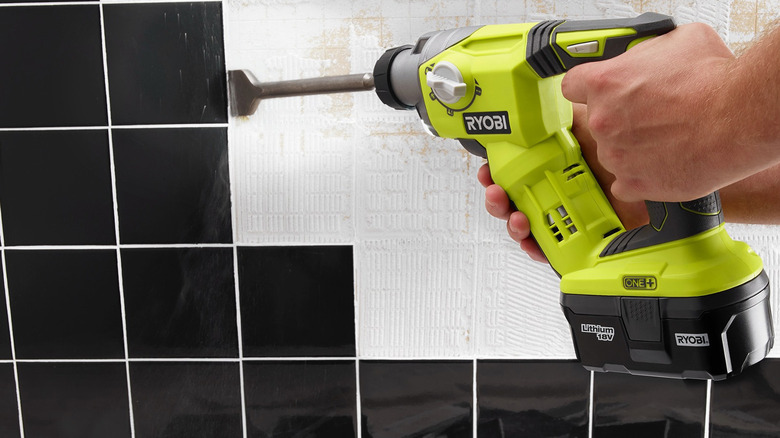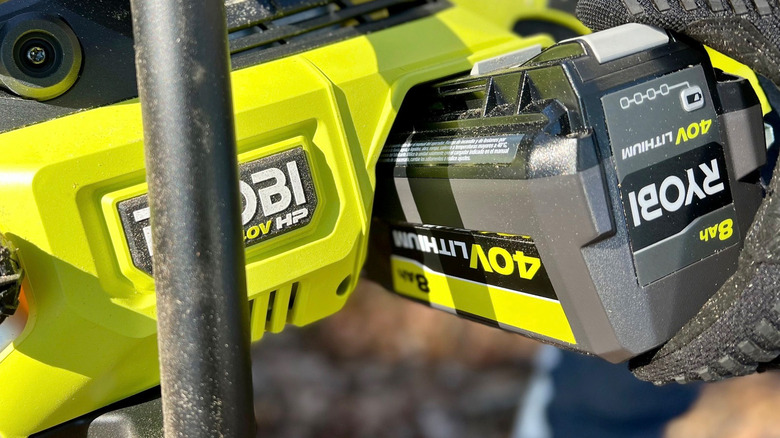How To Get The Most Out Of Your Ryobi Power Tool Batteries
Power tool batteries aren't cheap, so you'll want to do what you can to keep them in the best condition. If you've bought into the Ryobi ecosystem, chances are decent that you have a wide selection of batteries on hand. Ryobi is unique because many of the batteries are interchangeable with their power tools of the same voltage. This means your 18V power drill battery will work with your 18V electric snow shovel, but voltages like 18V and 24V won't mix. It's a nice touch, but you'll have to keep all those batteries properly stored to get much long-term use out of them.
There are a few ways to ensure the longevity of your Ryobi battery, and one of the most important things is not to leave it at no charge when putting it into storage. If you're not going to be using your battery for a while, you'll want to get it up to 50% charge and then unplug it, according to Ryobi. Leaving it on the charger or the tool could deplete its charge over time, and you won't want that when you're ready to use it again. You'll also want to take caution about leaving it in a place that's too hot or too cold. Ryobi recommends a cool, dry place that's no warmer than 100 degrees. This is in line with common recommendations you see when storing lithium-ion batteries, with the main thing to avoid being extreme temperatures.
How to get a replacement battery
There are a few signs of a failing battery, and sometimes, it's out of your control. Luckily, you have several ways to grab a replacement. The simplest option would be to buy another from Ryobi, but you can get one for free if you're still within your warranty. Ryobi power tools and their batteries are typically protected by a three-year warranty, so you can always grab a replacement if you fall within that timeframe. You can contact Ryobi through their online chat feature or call the support number for your replacement battery.
A typical lithium-ion battery lasts around three years if you're using it daily — a time frame that could put it within the Ryobi warranty. If you're not using your battery every day, then your mileage will vary. You can probably get more out of the battery with limited uses, considering each charge cycle depletes the battery over time. The downside is that if your battery finally dies years down the line, there's a good chance the warranty won't cover it. Old batteries should always be safely recycled, so make sure to look for a place you can do that when the time comes.

